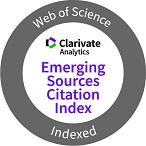LA PRAXIS LEGAL Y ETICA DE LA PUBLICIDAD EN EL PERU
DOI:
https://doi.org/10.46631/jefas.1995.n5.05Keywords:
legislation, advertising regulation, immature markets, free competition economy, self-regulationAbstract
Describes and analyzes the evolution of advertising regulation in Peru between 1974 and 1994. It also examines the role of the agencies in charge of enforcing the laws related to the practice of this activity and the self-regulatory efforts made. It is concluded that the excess of nationalism reflected in the 1974 norm has been reduced twenty years later to approach the prevailing international standards in this area; also that the current advertising regulation allows the participation of citizens in defense of their rights through the supervisory body and that advertising regulation is, in general terms, less restrictive than that of other countries. It is found that the degree of control exercised over advertising is a function of a series of cultural factors and gives rise to two opposing positions: the first holds that advertising legislation is necessary for consumer protection, the other argues that self-regulation of the advertising media is sufficient and that the laws only restrict freedom of opinion.
Downloads
Downloads
Published
How to Cite
Issue
Section
License
Copyright (c) 2021 Journal of Economics, Finance and Administrative Science

This work is licensed under a Creative Commons Attribution 4.0 International License.











